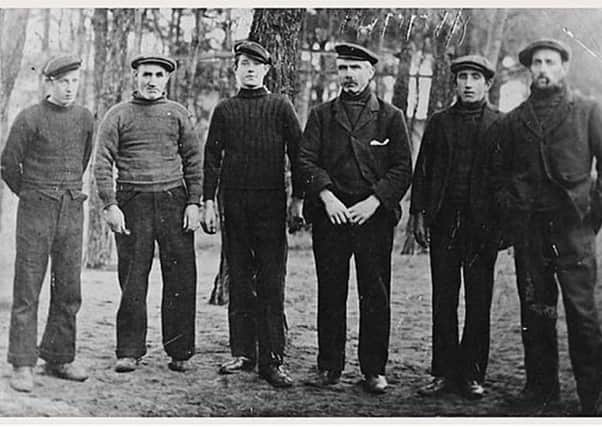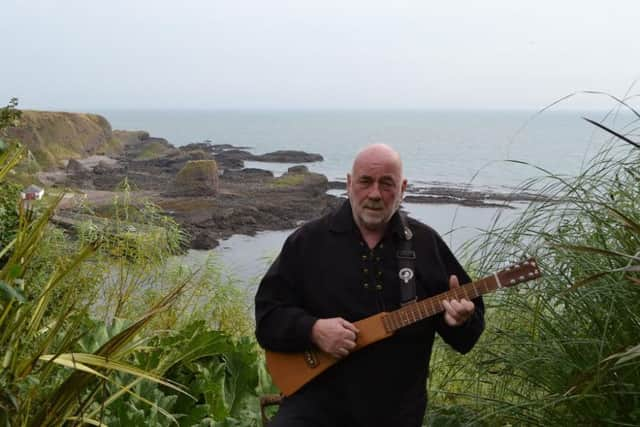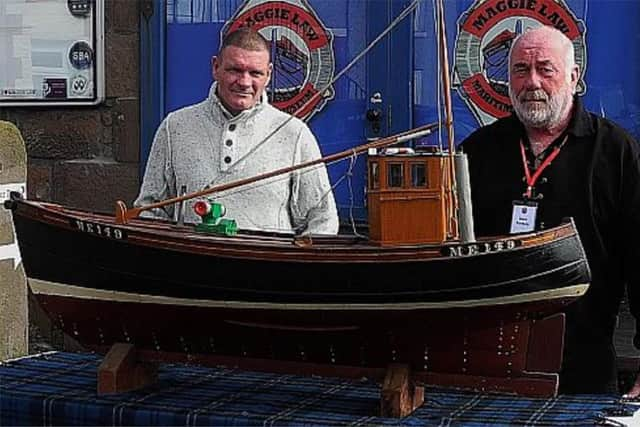The six North East fishermen captured by a German U-Boat


But around two months after the Bella disappeared from a tiny bay on the Aberdeenshire coast, a postcard arrived at the door of the skipper’s wife with the news no one thought she would hear.
Written by her son, James Ritchie, then aged just 17, she was told her family and fellow crew members were alive and well - in a Prisoner of War camp in Germany.
Advertisement
Hide AdAdvertisement
Hide Ad“Just to let you know we are all well in Germany. We are very well treated here. You can send a tin of syrup, butter, soap and a towel and some money. Try and get some small fish and roast them.


“Tell all we are asking for them,” the postcard, marked Brandenburg, Havel, said.
This weekend will mark exactly 100 years since the crew were seized by a German U Boat which patrolled the North East coast around six miles from the quiet stretch of shore.
On September 25 1916, young James Ritchie set sail with his father, skipper James - also known as Auld Briney - along with John Cargill (Auld Johnny) and his 17-year old son. They were joined by crew mates William Ritchie and James Freeman Ritchie, also 17.


The crew headed just north of Catterline Bay to shoot long lines for ling and haddock, roughly six miles off the coast.
But, as described by local historian and song writer Dave Ramsay - who has led the commemoration for the crew’s families this weekend - the ‘hunters became the hunted’ when the unmistakable outline of a German submarine emerged from the North Sea.
From the deck of The Bella, Auld Briney and his crew- three of them just teenagers - looked on aghast.


Advertisement
Hide AdAdvertisement
Hide AdAs fishermen, they had reserved occupation status during WWI and were spared the frontline. But quickly, the six men were to be pulled to the heart of the war.
According to one report, the Oberleutenant was somewhat apologetic as he drew up to the Bella to inform them that they had been seen - and therefore must be taken captive.
After being taken aboard, it is believed by some that the Bella was fitted with explosive charges and destroyed. Wreckage was found by search crews sent out for the missing men.
According to reports, the submarine remained in the area with the Bella crew offered one last glimpse of Gourdon - through a periscope.


The men were landed at Wilhelm’s haven and transported to PoW camps. The younger crew members were employed in forests as woodcutters with reports suggesting the older men were “treated like officers.”
News that the men were alive and well was reported in The Mearns Leader in 1916 under the headline Glad Tidings for Gourdon.
On Sunday, relatives of the crew members will meet in Gourdon for a commemoration ceremony with around 100 people due to attend - the vast majority of them Ritchies and Cargills.
Advertisement
Hide AdAdvertisement
Hide AdAmong them will be Alan Ritchie, the great-nephew of ‘Auld Briney’.
He said that the skipper returned to fishing as soon as he was freed from Germany in 1918 and went on to buy a new boat - called Happy Return.
Mr Ritchie has presented a model of the boat, which he said had hung in his shed covered in coal dust for many years, to the Maggie Law Museum in Gourdon.
Of the commemoration, Mr Ritchie said: “It’s great that this story is now being remembered. It happened 100 years ago so it is time everyone heard about it.”
Mr Ramsay, project director of Mearns Heritage Service, will perform a specially written song at the commemoration event which was also be attended by the German consul general and a number of Aberdeenshire dignitaries.
He said: “After the men went missing there was this tremendous emotional gap for the families at home between the wreckage of the Bella being found and news that the men were in Germany.
“I knew nothing of the story of The Bella until I read two lines about it in a a book by a local historian Roy Souter. I knew right away that this was a story that could not be forgotten.
•
DOWNLOAD THE SCOTSMAN APP ON ITUNES OR GOOGLE PLAY